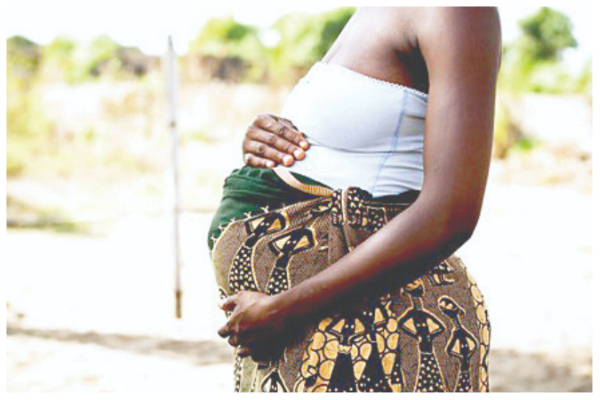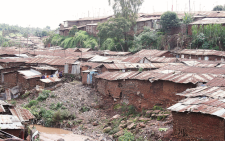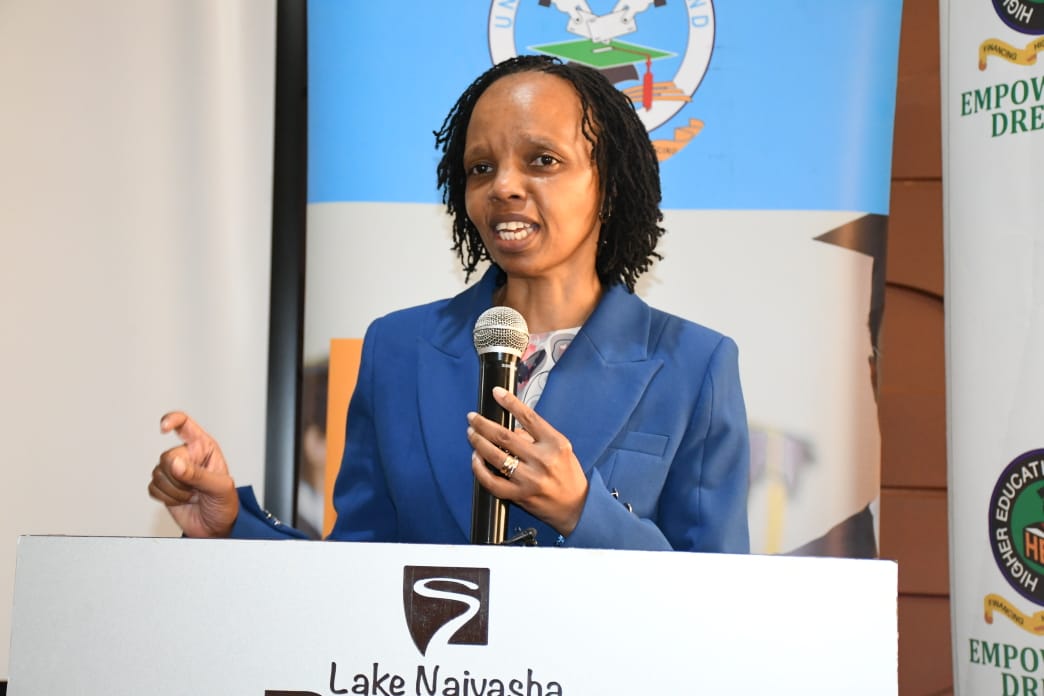Psychologist explains life after giving birth at 18, growing up in abject poverty

Every cloud has a silver lining, so goes a famous saying. This is particularly so for Salima Njoki Macharia, who did not let tough circumstances in her early life put her down.
At only 18, she got pregnant, just a few months to her Kenya Certificate of Secondary Education (KCSE) and despite giving birth in April 1995, she still sat her exams in October the same year.
The 45-year-old recalls how she was brought up in Nairobi’s Kariobangi slums, where she lived with her mother and four siblings in a single room. Their dad died while she was about seven years.
For Salima, growing up was not easy because she was compared to her elder sister, who was good in academics, while she was just an average student. “My mum for one reason or another favoured our first born who was meticulous, straight forward, but looked down upon me. I was called names such as ‘stupid’, ‘not good enough’, ‘that I could not amount to anything’ which really affected my early stages of life,” she recounts.
Looking for solace led her to get pregnant at a tender age and now that she is mature, she realises it was because of neglect and lack of warmth from her mother. For this reason, she embraced the first man who came into her life out of which, she got pregnant. It was a bitter pill to swallow for Salima because the man walked out on her in her time of need.
Even frustrating was that everyone else was in school studying while she was already a teenage mother.
“With all the challenges, can you imagine a child taking care of another child? It was not any easier because my mum kept throwing insults at me. She complained that she took me to school and then I brought her a child,” she says.
Picking the pieces
Salima’s siblings were warned not to hold her child and was also left to do house chores alone as a form of punishment because, again, she was not a bright student.
So tough her life was that at some point, she contemplated dying by suicide. “I wanted to take my life. I took some drugs before sleeping, but in the morning, I was still okay! I did not tell anyone what I had done,” she says.
Salima decided not to go down that route again and started doing menial jobs to sustain her child because her mother said she could not take care of her.
In 2002, she decided to dust herself up and got chance in a Tanzania-based college to pursue development studies and persuaded her mother to stay with her daughter.
Luckily, she got a well-wisher who funded 25 per cent of the total amount required for her school fees though she did not know how she would complete her studies after the first semester.
“I even told a friend that I would not be able to continue with my studies because of fees. But at times, you find angels along the way and she was generous to allow me stay at her place to cut on accommodation and meals. So, the only thing I was supposed to sort out was the school fees,” says Salima.
She struggled through her course and as fate would have it, a well-wisher paid all her pending arrears just when she was about to graduate.
“It has been a tought journey of bringing up my now 27 year-old daughter. But there is hope about the future, there is hope about tomorrow. I pride myself in bringing up a responsible and mature girl, now a finance graduate and married her off in a beautiful wedding,” she says.
Although her mother passed on in 2005, Salima says she has reconciled herself with what happened and is now at peace. She urges parents to love their children unconditionally.
Today, Salima is a counselling psychologist and describes herself as resilient, given the circumstances in her life.
“It gives me joy and satisfaction counselling other people, it is something I am passionate about. It is about helping people tap their inner strength, transforming their lives and seeing them bounce back,” she says.
Salima is just an example of how difficult teenage pregnancy can get to thousands of young girls, but there is still a second chance.
Ending teen pregnancies
According to Plan International, girls with early sexual debut, or with a child before the age of 18 or girls playing a caregiver role before 18 years need protection.
The organisation developed the 2021-2026 strategy, which seeks to address teenage pregnancies and all forms of violence against girls and young women.
“We dream of a country that plays a part in ending teenage pregnancies and all forms of violence against girls and women. Girls must be given the freedom to choose their path and fulfill their potential,” says Plan International Kenya, Country Director, Atieno Onyonyi.
Similarly, the Ministry of Health launched the national reproductive health policy in July, which seeks to improve sexual and reproductive health outcomes among adolescents and youths.
Leaving no girl behind
The policy proposes establishment of a universal reproductive health literacy framework, which ensures adequate age-appropriate information.
“Advocate for the implementation of the school health policy on revitalising health services delivery in schools and youth-friendly services in health facilities to improve access to information and services,” the policy states.
Forum for African Women Educationalists – Kenya (Fawe) is also running a programme to reduce incidences of teenage pregnancy in the country.
The three-year programme, dubbed Imarisha Msichana (Build her up/Strengthen the girl), is being implemented in 20 counties namely Nakuru, Nairobi, Machakos, Elgeyo Marakwet, Kiambu, Garissa, Bungoma, Kakamega, Nyeri, Migori, Murang’a, Kajiado, Narok, Homa-Bay, Trans-Nzoia, Nyandarua, Busia, Meru, Siaya, and Turkana.
Education Principal Secretary, Dr Julius Jwan who launched the programme in June, said it will mitigate challenges experienced by teenage girls, especially in relation to pregnancies.
“We still need to work harder to empower the girl child. Let us remember Sustainable Development Goals 4 (SDG 4), which talks about lifelong learning and leaving no one behind. Re-entry policies such as the ones advocated by Fawe are key in achieving education for all. As the Ministry, we support organisations in their endeavour to support education,” said Jwan.
Fawe Africa’s Executive Director Martha Muhwezi said teenage pregnancies remain a serious and ongoing economic, health and social problem in the country.
Other than robbing girls of their childhood, it also presents a huge challenge to their capacity to optimise their potential in future contributions to social, economic and political national development.
Imarisha Msichana, will also be a programme for baseline survey to establish actual status of girls who need support.
Young and at risk
“Teenage pregnancy continues to be one of the key hindrances to girl child education in Africa and Kenya in particular. We have seen instances where girls fall pregnant and never resume their education. This perpetuates a vicious cycle of poverty,” said Muhwezi.
Beneficiaries are teen mothers/adolescents ages of nine to 18 years and young women aged 19 to 25 years.
“We have chosen this age group because they are young and at risk of missing out on a bright future. It is possible and it has been proven before that a teenage mother can resume her studies and excel in her academics,” said Fawe Kenya CEO, Terry Otieno.
Findings of a Performance Monitoring for Action (PMA) survey on contraceptives released in August showed that adolescents who have had sex debut before the age of 18 years, 44.3 per cent were led by curiosity to know the experience, while 37.4 per cent were carried away, or lost self-control.
“About three in every 10 adolescents were sexually experienced at the time of the survey though 95 per cent of the sexually experienced adolescents would have preferred to wait longer before they had first sex,” said Prof Peter Gichangi, the PMA principal investigator, when he released the findings last month.
The survey shows that about 12 per cent of all adolescent girls aged between 15-19 years are using modern contraceptive methods while another four per cent used the morning after pill to prevent pregnancy after having unprotected sex or a birth control mishap.















